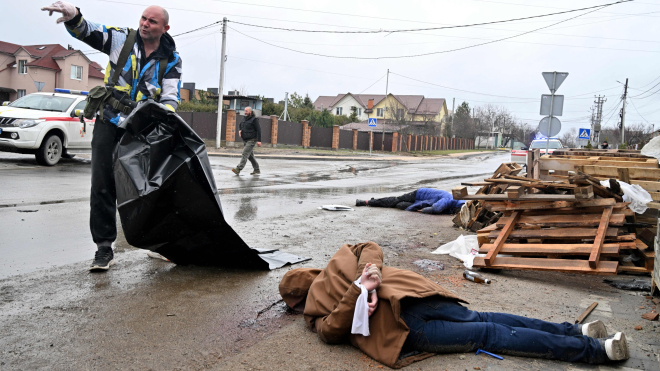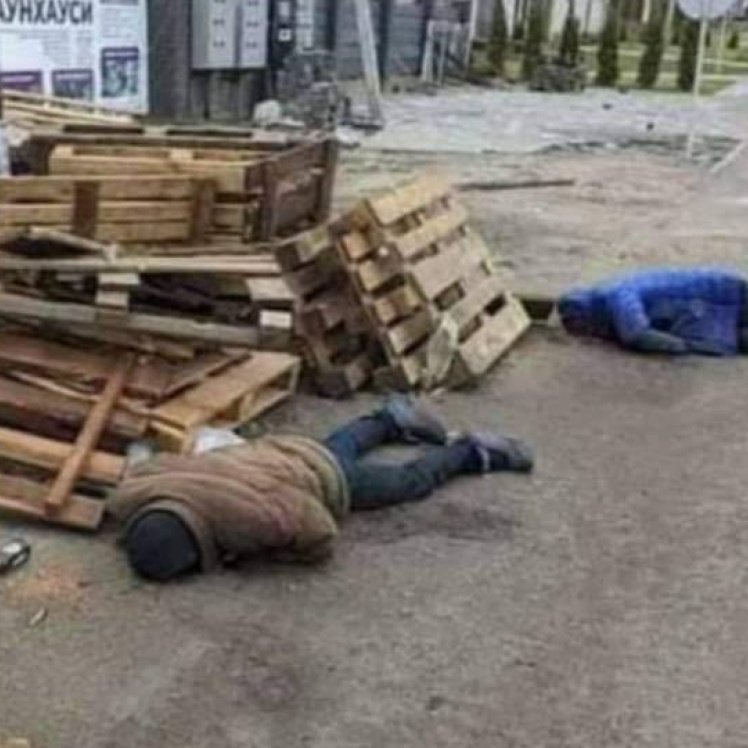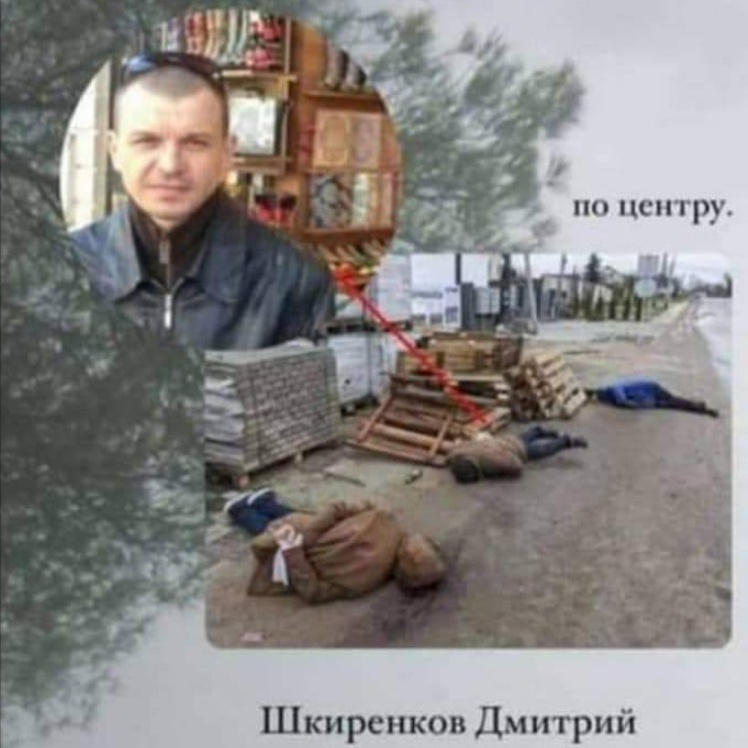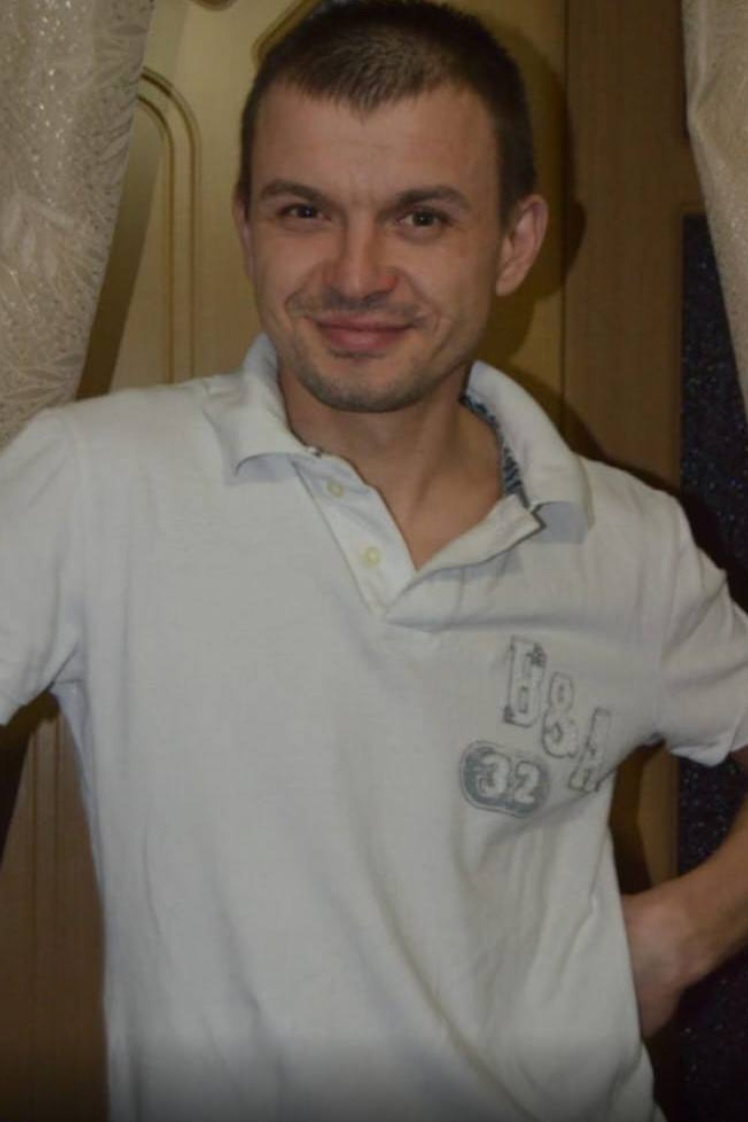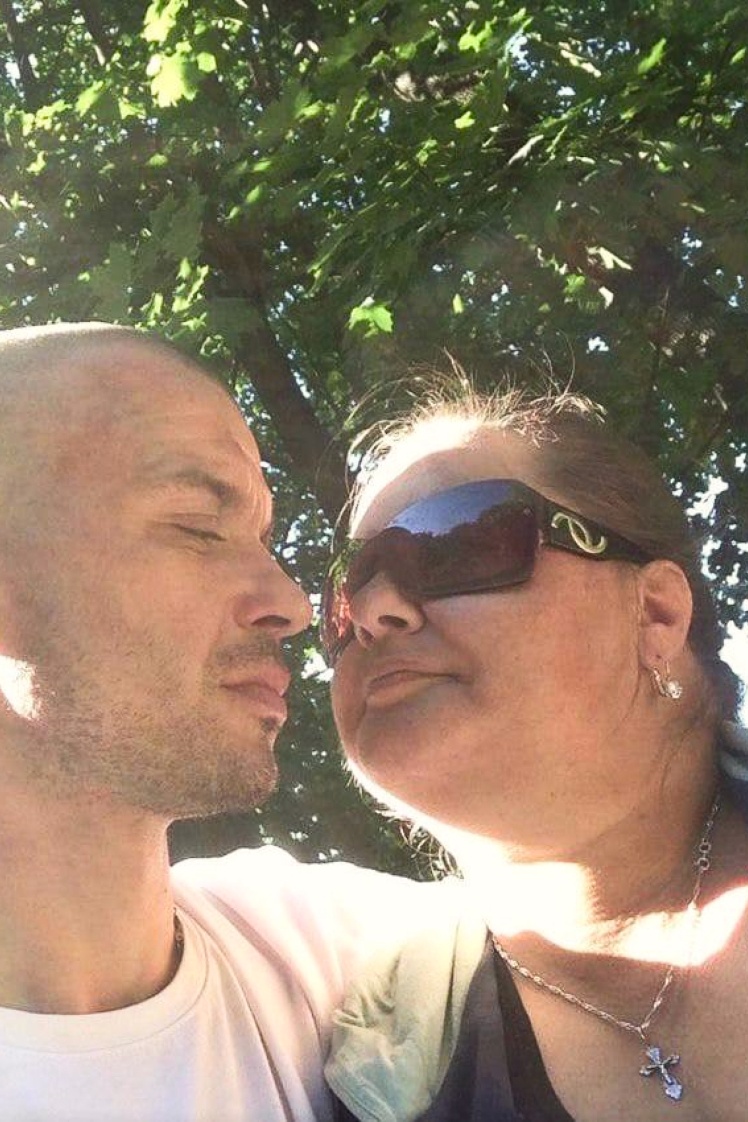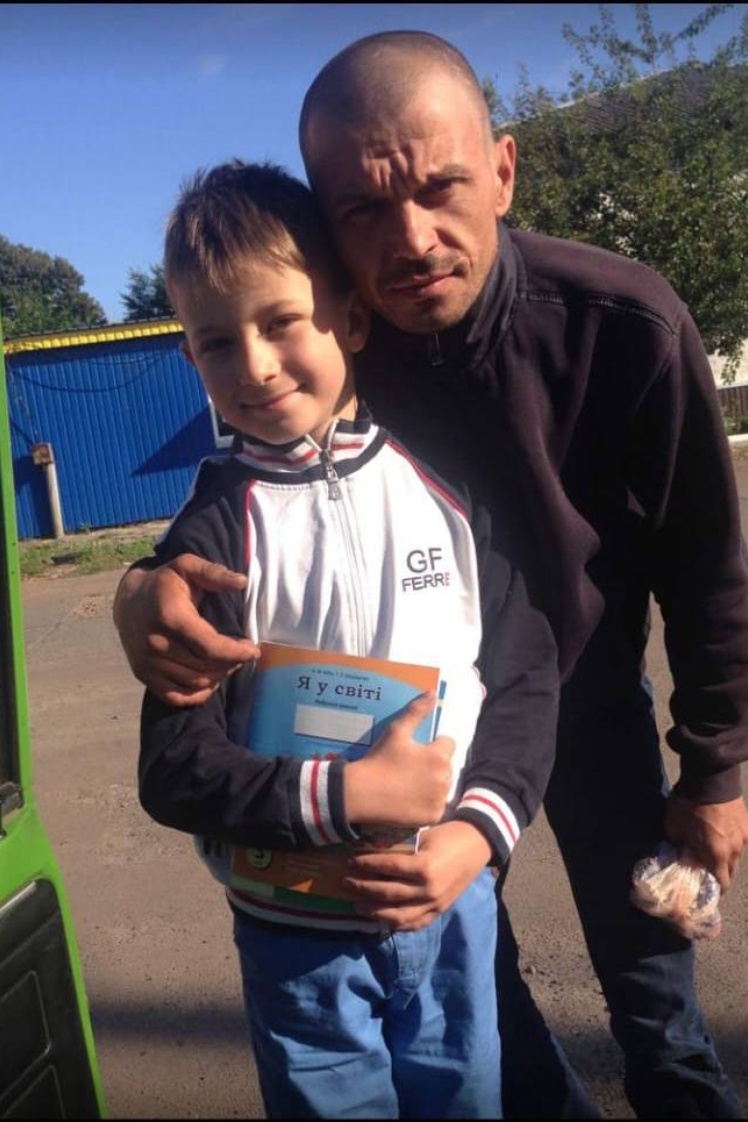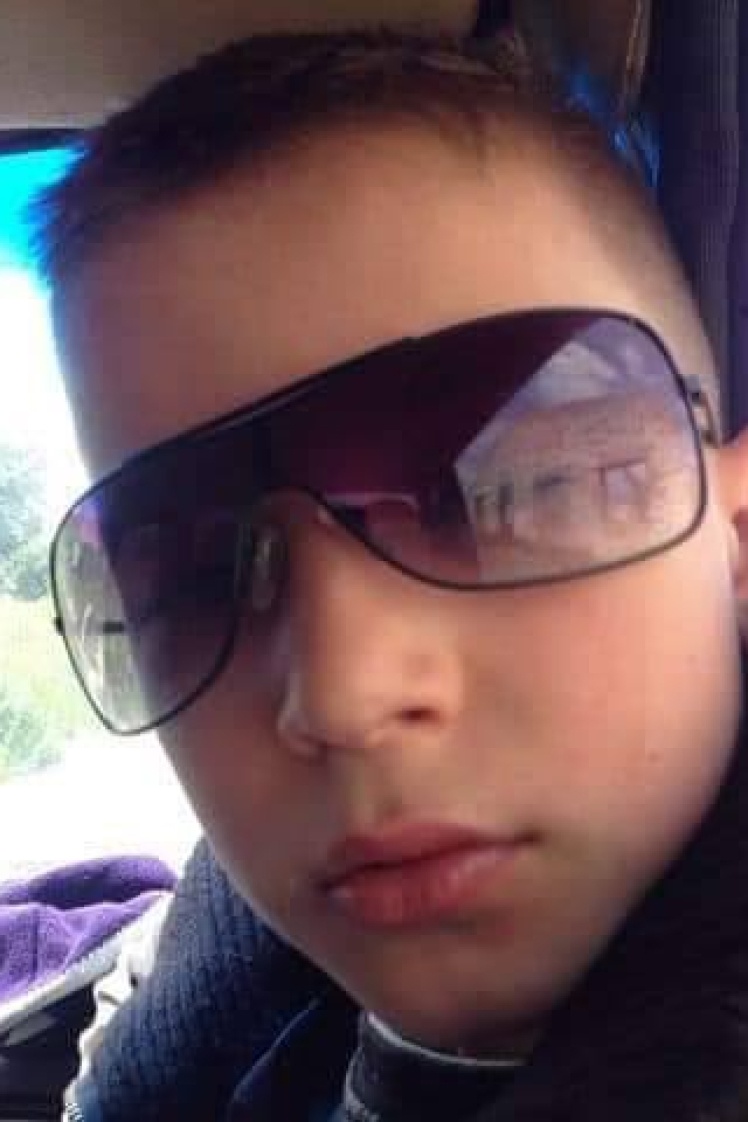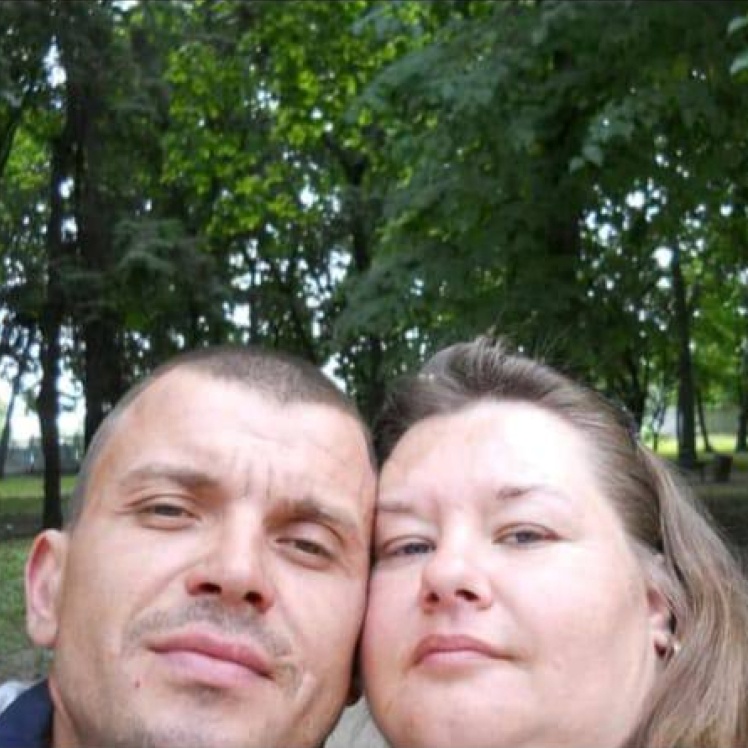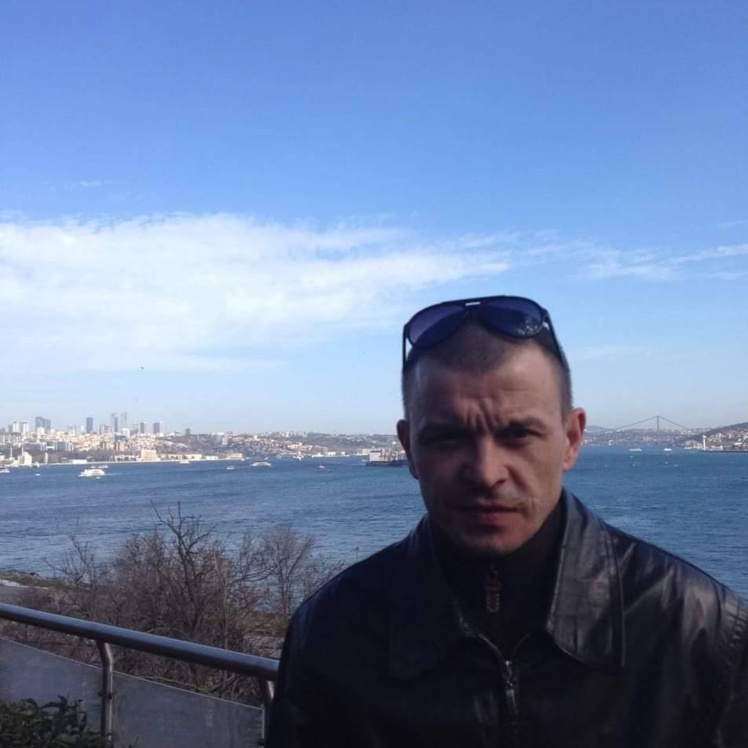The Russians finally occupied Bucha on March 5. They drove into the Sklozavodskyi neighborhood on the edge of the city and took control of Yablunska Street. It runs through the entire Bucha, being one of the longest streets in the city. It was here that the occupiers shot dozens of civilians. One of them is Dmytro Shkirenkov. His body, as well as the bodies of three other men (one of them did not make it into the frame), was found on Yablunska immediately after the liberation of Bucha. Dmytro Shkirenkov in the photo is in the middle.
Photo from the scene of the tragedy.
Архів дружини Марти / «Бабель»
Dmytro Shkirenkov was 38 years old, he is originally from Moldova. Ten years ago, together with his wife Marta Kirmichi and son Serhiy, he moved to Ukraine, got a residence permit, and lived in the village of Syvolozh in the Chernihiv region. He worked as a construction worker and often went on business trips to the Kyiv region — in particular to Bucha, Irpin, and Gostomel. Dmytro went on another business trip to Bucha on February 16. The beginning of a full-scale war caught him there. Marta and her son were at home at that time, in the village of Syvolozh.
As long as Dmytro had cellular connection, he called his wife every day. On March 1, he contacted her via messenger: showed what was happening around, the woman heard screams, shots and explosions. Dmytro could not leave Bucha.
Since the first days of March, normal communication has disappeared in the city. Sometimes, when Dmytro managed to catch the signal, he told his wife that he was sitting in the basement with the others, that there was no water, that when there was an opportunity, together with other men, he delivered water and firewood to the pensioners.
Dmytro alone and with his wife.
Архів дружини Марти / «Бабель»
Dmytro was last contacted on March 16. The conversation with Marta lasted about 30 seconds.
“He called at five in the morning and shouted: ʼSunny, Iʼm alive!ʼ”, remembers Marta. “He did it in such a strange tone... I asked what happened, and Dima answered that he just loves me and my son so that I would take care of our boy. And then the connection was lost.”
When Bucha was liberated, Marta saw a photo of the three shot men, but since she did not look at it in detail, she did not recognize Dmytro. The next day, a friend called her and said: “Hold on, Dima is gone.” Eyewitnesses later said that on March 18, Dmytro was sitting in the basement with other people. When everything quieted down a bit, the men went outside to smoke. Then they went to change clothes at the trailer on the construction site. Someone told the Russians where they went. The occupiers headed for the trailer with weapons. At first, the men were tortured there, and later they were taken out and shot.
“I found Telegram channels where photos of those killed in Bucha were published. I looked through almost 90 photos. I thought maybe it was a mistake, maybe Dima didnʼt die, but someone made a mistake,” says Marta. “But somewhere on April 9-10, I recognized him in one picture. I found out that my husbandʼs body got to Vyshhorod. So I went there with my son. At that time, I did not know that all the bodies were simply kept in black bags in the car.”
Marta recognized Dmytro, he was buried on April 13 at the cemetery in the village of Syvolozh.
Marta is person with disabilities. Dmytro, she says, has always been a support for her. He worked in the garden, did household chores, stocked firewood. Marta calls him the sun man. And she says that she was very happy with him.
“The feeling that a piece of me was torn off. Sometimes the pain increases: I scream and cry, and then I calm down,” says Marta. “I live for the sake of the child. When my son and I found out that Dmytro was killed by these bastards, I received the greatest support from my son, who was always by my side.
Dmytro with his son Serhiy. Serhiy.
Архів дружини Марти / «Бабель»
“Dad was very understanding, he always gave me advice. You know, sometimes it happens that parents can hit you, but he never did,” 13-year-old son of Dmytro Serhiy recalls. “We often went fishing with him, I liked it. And now, without my father, somehow I donʼt want to fish.”
Dmytro with his wife.
Архів дружини Марти / «Бабель»
On the eve of the full-scale invasion, Marta and her husband went on business to Chernihiv, and it so happened that they had to follow the funeral procession:
“Dima then said: ʼYou know, Marta, this is an ordinary day for us. And for those people who have lost someone, itʼs the most terrible.ʼ At that time, I somehow didnʼt notice the importance of these words, but now I remember and understand that it is only our grief. Every day in Ukraine, people experience their own personal grief that others cannot understand.”
Translated from Ukrainian by Anton Semyzhenko.
Everyone can join the collection of the names of those who died in the war between Russia and Ukraine. To report data on the losses of Ukraine, fill out the forms: for dead military and civilian victims. And you can help Babel tell these stories like this: via Patreon 🔸 [email protected]🔸donate in cryptocurrency🔸in Ukrainian hryvnia.
